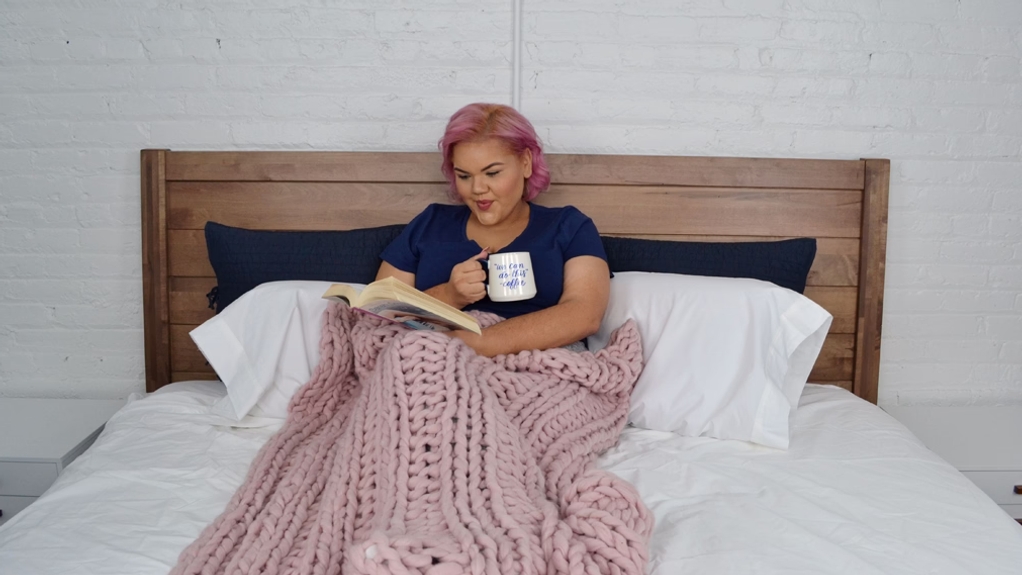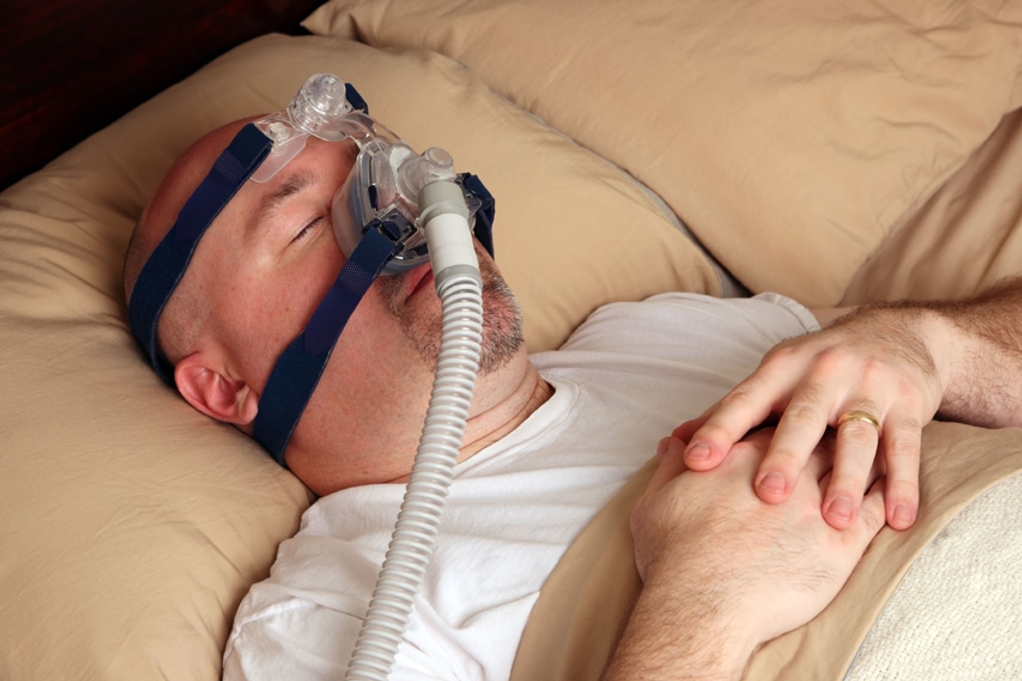After an undeniably fun evening of binge-watching reruns of your favorite Netflix sitcom, you peep over at the clock to see if you can squeeze in another quick episode -- oh, crap -- it’s already two hours past your usual bedtime! You know it’s going to be a pain to wake up before the sun does the next day, so you have to make a fast decision before hitting the hay: Will you push through and get out of bed at your usual 6 a.m. wake-up call, or will you hit the snooze button to catch up on missed Zzz’s?
The first option -- although very tough -- is your best bet if you want to maintain a solid sleep cycle that supports productivity, energy, and happy moods. But, if you do choose to sleep in, on the other hand, you risk pushing your bedtime back further and further until waking up at your usual time feels impossible, and you spend the day battling fatigue -- and who wants to deal with that?
If you find yourself in this rather frustrating -- and sleepy -- situation, you can try to reset your out-of-whack sleep schedule with these tips below!
But First, Why Is Our Sleep Cycle So Important, Anyways?
Human beings are often described as creatures of habit. Why? Because we can easily become conditioned to distinct patterns of behavior through repetition of certain responses and cues. Routines (both good and bad) can make actions nearly automatic in numerous aspects of daily life -- including sleep.
Actively cultivating a healthy sleep schedule makes it a million times easier to get the sleep you need on a consistent basis. By creating habits and cues that promote the Sandman to come to town, the norm becomes drifting off to snoozeville quickly and staying asleep through the entire night. With more repetition, the schedule gets reinforced, facilitating increasingly stable sleep patterns over time-- and that’s why our sleep cycles are so important! Without a solid sleep schedule, we can’t get the proper sleep we need to wake up bright-eyed and bushy-tailed the next day.
What Is Circadian Rhythm?
Circadian rhythm is a principal driver of your sleep schedule. It’s a 24-hour cycle that is part of your body’s internal clock (commonly referred to as your sleep clock). Circadian rhythm is essential to managing the delicate balance between sleep and wakefulness, helping us to be drowsy or alert at the appropriate time.
Light exposure is a major influence on circadian rhythm, which is closely aligned with the day-night cycle. When your peepers are exposed to light, your brain automatically sends signals associated with wakefulness. However, when light exposure decreases at night, the signals switch to promote calmness, relaxation, and sleep.
In this way, circadian rhythm helps to synchronize our internal clock with our external environment. Researchers have demonstrated from multiple studies that a well-synchronized circadian rhythm can contribute not only to healthy sleep but also to many other aspects of health.
Okay, So How Does Our Sleep Schedule Get Thrown Off In The First Place?
Ah, good question! To be honest, there are a ton of different ways for our sleep schedules and circadian rhythms to get thrown out of whack. And while we don’t have time to go through every single one, let’s touch on some of the main causes:
- Jet lag: If you've ever flown from one part of the country to another -- or even further -- chances are you've experienced a little thing called jet lag. Associated with traveling across multiple time zones rapidly, jet lag occurs when our internal clock is at odds with the day-night cycle at our travel destination.
- Artificial light exposure: Biologically, the circadian rhythm was developed to correspond to sunlight long before Benjamin Franklin discovered electricity. However, your brain responds to artificial light as well, which means that constant exposure to indoor lighting can interfere with typical signals that convey whether it is night or day.
- Delayed or advanced sleep timing: Some individuals are extreme “early birds” or “night owls,” which means that their sleep timing -- also known as their sleep phase -- is shifted forward or back by several hours.
- Shift work: Those who work the graveyard shift have to be awake when it’s dark and sleep when the sun’s out, which can greatly disrupt normal circadian synchronization.
- Fluctuating sleep hours: Many individuals have no set wake-up time or bedtime. Their sleep schedule can swing wildly in one direction to another, back and forth from one day to the next or between weekends and weekdays -- which prevents establishing a solid sleep pattern.
- Caffeine and energy beverages: Stimulants may help you to feel alert, but they can also upset your body’s ability to naturally balance wakefulness and sleep, making it much more difficult to catch some Zzz’s when you need to.
- Behavior choices: Choosing to stay up late or wake up early to exercise, study, get work done, or take part in social activities can throw off normal sleep schedules.
- Stress and emotional difficulties: Believe it or not, many sleeping problems are linked to stress, anxiety, or other emotional or mental health problems. These troublesome conditions can wreak havoc on your sleep schedule, causing the mind to race when it’s time to sleep or fatigue during the day when you should be awake.
5 Tips To Fix Your Sleep Schedule
Now that you understand just how important your sleep schedule is and what causes it to get out of whack --- let’s explore some top tips to fix it, shall we?
Put The Phone Away
With all the stress and unknown regarding the current pandemic sweeping over the nation, a lot of people are understandably glued to their cellular devices, constantly checking up on news outlets and talking to family members. However, constant contact with your cellphone can hinder both your productivity during the day and your sleep quality at night.
Beyond all the negative aspects related to blue light, having your cell phone in arm’s reach can make you feel anxious because you’ll be tempted to check news outlets and think about the current crisis -- which will obviously cause stress.
To get your sleep schedule back in order, put your try charging your phone in a different room at night.
Get Outside and Get Moving
A little exercise and fresh air can help calm and tucker you out, while vitamin D from the sunshine helps to regulate your circadian rhythms. When your circadian rhythms are consistent, your sleep schedule will improve.
Stretch Before You Snooze
It’s pretty challenging to sleep when your muscles are tense and tight -- which can happen during times of extreme stress (we’re looking at you, Covid-19). If you go to bed tight, you will likely spend the evening tossing and turning frequently in order to find a comfy-cozy position. So before you snooze, take ten to twenty minutes to stretch. Stretching will help to loosen up those tight muscles and get your body in a relaxed state for sleep.
Upgrade Your Sleeping Arrangements
Did you know that sleep deprivation has been shown to affect our daily emotional, cognitive, physical, behavioral, and psychological functioning? Yup, it’s true. Sleep deprivation is related to significant health complications, such as heart disease, a weak immune system, obesity, and cancer --just to name a few.
To improve your sleep schedule, try upgrading your sleeping arrangements. A top-notch mattress could make all the difference between okay sleep and amazing sleep. We love the Big Fig Mattress because it’s soft and comfy while still being bouncy, supportive, and strong.
Nix Daytime Naps
With extra free time on your hands (or perhaps because you’re working from home), it may be easy -- and enticing -- to sneak in a quick daytime nap. While the occasional snooze can be a great reset for the rest of the day, it may rob you of the more essential and restorative shut-eye that your body needs at night.
Bottom Line
Changing your out-of-whack sleep schedule can be really challenging, to say the least, but with our five tips listed above, it can be done -- whether you put your phone away or try a Big Fig Mattress, you’ll be on your way to better Zzz’s in no time.
The Big Fig Mattress is specifically designed for bigger figured sleepers, providing a comfy-cozy, supportive and cooling sleep surface that works to prevent morning aches, waking up in a puddle of sweat, and the dreaded mattress sag. Bring balance back to your sleep schedule and try a Big Fig Mattress today -- trust us, you’ll be glad you did!
Sources:
What is Circadian Rhythm? | Sleep Foundation
4 Timely Facts About Our Biological Clocks – Biomedical Beat Blog
The genetics of circadian rhythms, sleep and health | PubMed




